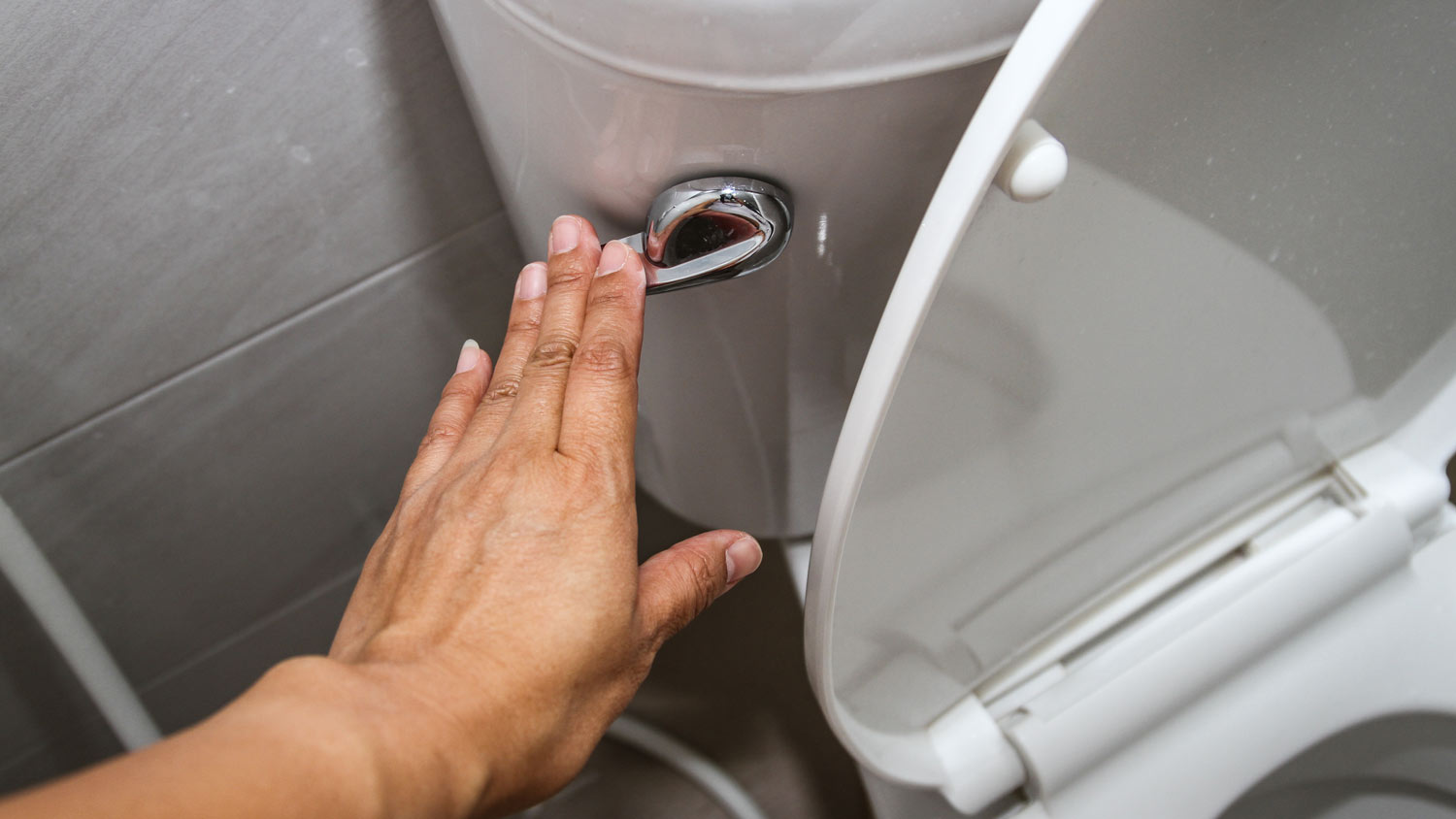
Need to know what sewer line replacement costs in Baltimore, MD? This guide will help you prepare to budget for sewer line replacement done by local contractors.
Send the scents away


Septic smell usually means a bigger issue with your home’s plumbing.
A pro will have specialized tools to get the job done.
While the cost to repair a septic tank can be pricey, it’s well worth the investment to avoid any health hazards or further repair that can come from a DIY.
DIY tricks to mask the smell may end up causing more damage in the long run, so it’s best to hire a local septic tank pro to come in and eliminate the problem before it persists.
You’re outside on the deck enjoying a barbeque when you smell sewage or a rotten egg odor—that’s one way to ruin a gathering. The culprit is most likely your septic system, which could be leaking if you smell septic outside. A leaking septic system is not just a nuisance, it can be a health hazard for you, your family, pets, and the surrounding area. Learn how to get rid of the septic smell outside, and know when to contact an expert.
Smelling your septic outside is a sign that something is wrong with your septic system. Leaking sewage is an imminent danger to the health of humans, animals, and the environment. If you notice a septic smell outside, it’s best to get to the root of the issue and fix it as soon as possible.
You might have a septic smell outside for several reasons:
A manhole or riser cover is not secured properly
A blocked pipe is causing a leaking leach field
A plumbing vent pipe is blocked
A vent pipe is too short or needs a filter
Your septic tank is overflowing
The septic tank chemistry is imbalanced
Drainage issues on your property is causing pooling near the septic system
Cold weather has frozen part of the septic system, especially if it’s not being used
A septic inspection by a local septic tank pro can help determine the root cause of the septic smell. A septic inspection costs $200 to $900. The average cost to repair a septic tank is $1,790. If your septic tank needs pumping, expect to pay $400 on average.

Before opening manholes and access lids or testing the level of scum and sludge in your septic tank, be sure to protect yourself. Septic fumes can be a serious health hazard as they are toxic to the human body. They can cause irritation of the eyes, nose, throat, and respiratory system. High amounts can even cause organ damage or be fatal. Put on rubber gloves, safety goggles, and a gas mask. Never stick your head into a septic tank and consider working with a partner for extra safety should an accident occur. Never leave a septic tank uncovered where children or pets can access it.
You can help prevent sewage smells by frequently running water in drains or faucets you hardly use, only flushing toilet paper and human waste, and ensuring you get your septic tank pumped every three to five years.
You can get rid of the septic smell outside by sealing access lids, unclogging your vent stack or sewer lines, and redirecting rainwater.
If you notice a strong odor, especially around the septic tank, it can signal that you have a leak in the manhole or access lid.
Check the risers, access lids, and manholes of your septic system to see if the covers are securely sealing the tank. Your septic tank manhole cover is usually made of concrete, metal, or plastic. Septic tank covers can be up to one foot under the soil unless you have a tank with a sump pump (then it's generally at the surface).
Look to see if the rubber seal around the manhole or lid is intact and secured with lag screws.
Repair any broken seals with weather stripping to contain the odors. This is a temporary fix.
Contact a local septic tank repair company to repair the tank and replace the permanent seal.
If the vent stack on your roof gets clogged, your septic system isn’t getting the correct air pressure in the plumbing system. Without fresh air entering, the system experiences imbalance, and the odors can be overpowering.
Check for clogs in your vent stack if it is safely accessible from your roof. Follow all roof safety guidelines (or hire a local plumber or septic tank repair company to handle this for you). Getting on roofs can be extremely dangerous, especially if you do not have experience.
Look for bird nests, dirt, snow, and debris that might be clogging the vent.
Clear out debris, snow, or animal homes with a soft, bristled brush, or small shovel.
Wait for five days to see if the septic smell goes away.
If the smell doesn't go away, contact a local plumber or septic tank company to inspect the pipe. Your vent pipe might not be long enough. If your home is in a low-lying area, valley, or surrounded by trees, there may not be enough air circulation and wind to disperse the odor. A longer vent pipe can help lift the odors up and away.
You may need a carbon filter for your vent pipe. A plumber or septic tank company can add one. You’ll need to replace carbon filters once every one to five years.
If you notice septic smells outside after it rains, it can mean that groundwater is seeping into your septic tank and causing it to overflow.
Go outside after heavy rainstorms and see if you notice the septic smell.
If the smell is present, contact a local plumber. They can assess the area and construct a drain to redirect rainwater away from your septic tank.
If you notice soggy soil or water pooling in your lawn or the septic smell near your septic tank, your pipes around and in the leach field might be clogged or broken. Unclogging or repairing underground pipes isn’t a DIY project because it can expose you to unsafe sewer gasses. It’s best to contact a local septic tank company to handle this for you—they have the proper training and tools to get the job done safely.
If your area experiences freezing temperatures and you don’t use your septic system often, like if it’s at a vacation home or cottage, the septic system could freeze. In most cases, restarting use of the system fixes the issue. You may have a blocked drain field or other issue if it does not. Contact a septic system company to come take a look.
Most septic tanks need to be pumped once every three to five years. But your septic tank might need a pump before then, especially if it experiences heavy or improper use. A scum and sludge level test can help you check if your septic tank is full. Perform the test in each compartment of your septic tank.
Create a scum stick by cutting six inches off a 10-foot PVC pipe. Glue a 90-degree PVC elbow to the end. Glue end caps on both ends.
Lay a wooden board across the top of the manhole or riser.
Insert the scum stick into the manhole with the elbow first. Push it into the tank's compartment until it rests on the top of the scum layer. Mark the scum stick to denote the top of the layer.
Push the scum stick down until it's through the scum layer. Gently pull the stick upward to feel the bottom of the scum layer, a sign that you have the stick in the right place. Mark the stick again.
Remove the stick. Measure the distance between your two lines to determine the thickness of the scum layer.
Create a sludge stick with a 10-foot PVC pipe. Glue an adapter and end cap to each end.
Wrap 2 feet of a white towel or rag around the bottom of the stick. Fasten it with string or rubberbands.
Use your original scum stick to make a hole in the scum. You do not want your sludge stick to get stained by scum. Take out the scum stick.
Lower the sludge stick through the hole to the bottom of the scum layer. Mark the stick.
Insert the sludge stick to the bottom of the tank. Hold the stick there for 10 minutes to allow the sludge to stain the white towel. While you’re holding it there, mark the sludge stick where it meets the board on the top of the hole.
Remove the sludge stick.
Measure the distance between the scum line (first measurement) to the line you drew when the sludge stick was at the bottom of the tank (second measurement). This number equals the depth of the tank.
Measure the length of the distinct dark stain on the white towel. That is the depth of the sludge layer.
Add the scum layer and the sludge layer together. The total should not exceed one-third of the tank's depth. If it does, then the tank needs to be pumped. Contact a local septic tank repair company to pump and clean your tank.
If your type of septic system includes aerobic treatment units, media filters, or constructed wetlands and you notice a septic smell, the system is likely malfunctioning. It’s best to contact the installer or a septic tank repair company to assess the system and fix the issue.
Bacteria is used to break down the sludge in your septic system. Not enough bacteria can cause the sludge to back up, leading to an overfull septic tank. Increase the bacteria in your septic system naturally to see if it will reduce the smells, at least temporarily.
Take three rotten tomatoes and put them in your garbage disposal one at a time. Run your garbage disposal and the water until you process all of the tomatoes.
Repeat once every three months.
If you notice a rotten egg smell near the septic system, it may mean that the pH balance in your tank is too low, meaning it’s too acidic. Your septic tank should have a pH between 6.5 and 7.5. Putting baking soda into your septic system can help raise the pH level.
Pour one cup of baking soda into the toilet and flush, or put one cup of baking soda down the kitchen sink drain.
Do this once a week and watch for reduced septic smells outside.

The best way to prevent septic smells outside your home is to maintain your septic system.
Have a professional inspect and pump your tank once every three to five years.
Avoid putting chemicals, bleach, and medications down your drain.
Avoid putting non-organic materials down your drain including wipes, feminine hygiene products, and trash.
Avoid planting deeply rooted trees and plants near your septic system and drain field.
Use natural soaps and cleaning products instead of harsh chemicals and antibacterial soap.
Avoid septic tank additives as they can hinder the performance of your septic system.
You can fix some septic issues yourself, such as temporarily sealing a manhole or increasing the bacteria in your tank. But climbing on your roof to investigate a vent stack issue, unclogging a sewer line, or fixing a drainfield should be left to the experts. Working with septic systems can be challenging and potentially hazardous.
Contact a local septic tank company who can assess your septic system and help you rid your property of odors. The cost of a septic tank inspection typically ranges from $200 to $900 but is usually well worth the investment. A pro prevents even costlier issues in the future and reduces health hazards for you, your family, and the surrounding area.
From average costs to expert advice, get all the answers you need to get your job done.

Need to know what sewer line replacement costs in Baltimore, MD? This guide will help you prepare to budget for sewer line replacement done by local contractors.

Need to know what sewer line replacement costs in Charlotte, NC? This guide will help you prepare to budget for sewer line replacement done by local contractors.

Planning a big project? It might be time to ask how much it costs to get utilities on land. This isn’t a budget-friendly project, so start planning here.

Want to learn how to build a septic tank for your rural or off-grid property? First, check your local laws, then dive into these general guidelines.

Got a septic tank? Then you've got a leach field. Knowing where it is helps you maintain your system. Here's how to find a leach field.

When considering a home in a rural area, you may not have access to a municipal sewer system. Learn all about living with well water and a septic tank before taking the plunge.